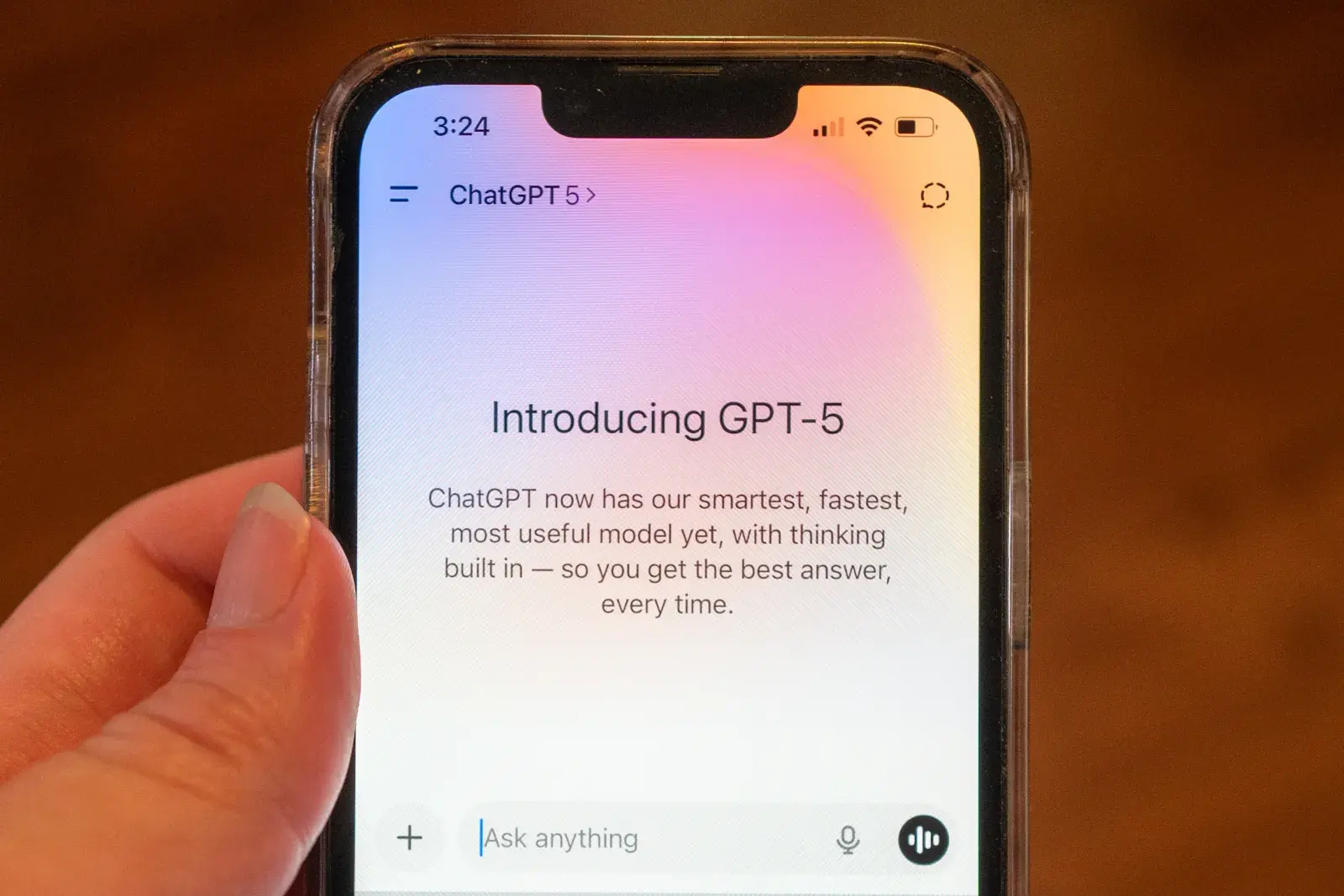By Suzanne Blake
Copyright newsweek

Distrust for artificial intelligence (AI) remains high even amongst the tech workers who are regularly using it, according to a new survey from Google.
Google’s DORA report, which was published earlier this month, found the percentage of software development professionals that used AI surged to 90 percent. Despite this, only around a quarter actually trusted the technology.
Why It Matters
The rapid adoption of AI intelligence systems is leading to major changes in how Americans interact with technology, information and everyday services.
However, the implications of its rapid adoption have many concerned. While employees may fear AI’s acceleration will take away their jobs, others remain skeptical about just how far its power will go.
Close-up of a person’s hand using the OpenAI GPT-5 artificial intelligence model on an iPhone, with text introducing the model, Lafayette, California, August 7, 2025. (Photo by Smith Collection/Gado/Getty Images)
What To Know
The DORA survey of nearly 5,000 global technology professionals found that 90 percent are now using AI in their daily workflows. This marks a sharp rise compared to previous years and extends across roles from software engineers to product managers.
Professionals reported dedicating a median of two hours a day to working with AI tools.
The report also identified strong benefits for users, with more than 80 percent saying AI had improved their productivity, and 59 percent reported better code quality as a result.
While the majority of tech workers use and benefit from AI, only 24 percent expressed significant trust in it, with 4 percent stating they trust AI “a great deal” and 20 percent “a lot.” Meanwhile, 23 percent trust it “a little” and 7 percent not at all, underscoring widespread hesitation about relying fully on AI in critical tasks. An additional 46 percent said they “somewhat” trust the quality of AI-generated code.
“Tech workers don’t trust AI because they see its flaws every day: bias baked into training data, hallucinations, and systems with no accountability when things go wrong,” HR consultant Bryan Driscoll told Newsweek. “They understand that black box decisions can create real risks for businesses and people. That perspective makes them far less likely to buy into the hype.”
The swift integration of AI also coincides with a tightening job market for entry-level software engineers. Job listings have dropped sharply, with postings for software engineering roles on Indeed falling by 71 percent from February 2022 to August 2025.
Data from the Federal Reserve Bank of New York also indicated the unemployment rate for recent computer science graduates now exceeds that of other fields like art history and English.
What People Are Saying
HR consultant Bryan Driscoll told Newsweek: “Adoption will still accelerate because outside of tech, many workers either don’t see or don’t care about the risks. If an AI tool speeds up tasks, leadership is quick to roll it out, even if trust is shaky. That creates a two-tier reality: the people building and testing these systems are skeptical, while the broader workforce is told to use them regardless.”
Kevin Thompson, the CEO of 9i Capital Group and the host of the 9innings podcast, told Newsweek: “The hard truth about AI is simple: it inherits human bias. Every line of code, every model, every dataset carries the fingerprints of its creator. Just like technical writing or programming, you can’t strip out the bias of the human behind it.”
Alex Beene, a financial literacy instructor for the University of Tennessee at Martin, told Newsweek: “The attitude some in the tech field have of artificial intelligence should be considered more by businesses in other sectors of the economy because they’re startling to say the least. As AI is gaining faster and more prominent acceptance, some employers are looking for ways to incorporate it into every facet of their business without considering the pitfalls. Yes, AI can greatly simplify certain tasks, but a reliance on it for more judgement-based decisions could create more error than efficiency.”
What Happens Next
The DORA report advised companies that AI’s full benefits depend on shifting workplace culture and processes to support the integration of new technologies.
Driscoll warned that industry leaders will need to focus on transparency amid their push toward AI as confidence in the technology dwindles.
“AI will become more embedded in daily work, not because it’s trusted, but because speed and supposed efficiency wins in most companies,” he said. “Unless industry leaders and regulators focus on transparency, oversight, and responsible design, adoption will keep growing while confidence keeps shrinking. That imbalance could lead to dependence on tools that workers fundamentally doubt – an unstable foundation for …



